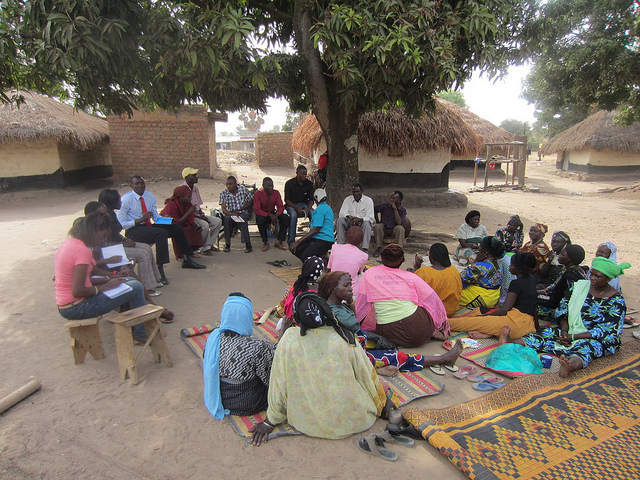
|
| A group of students travelled to five secondary cities in Uganda as part of th Cities Alliance funded TSUPU program. Photo: SDI |
Shack/Slum Dwellers International (SDI)
[20 March 2012] -- As part of Transforming the Settlements of the Urban Poor in Uganda (TSUPU) partnership programme, SDI has entered into a collaborative field project with third year planning students at Makerere University, Uganda’s largest and second-oldest higher institution of learning.
Early in March, SDI members accompanied students to Kampala and five secondary Ugandan cities (Mbarara & Kabala, Mbale, Jinja and Arua) where the students conduct enumerations, transect walks, mapping exercises and other important community centered activities. These are cities with a strong federation presence that is driving community collected information gathering, forging deep and productive partnerships with municipal government, and launching community managed development projects in slums.
Groups of approximately ten students each, boarded buses bound for the five secondary cities. When the students arrived each of their respective cities they first met with federation leaders who debriefed them on the urban reality in their municipality, the work of the federation, and the enumeration process. The students asked these members many questions and engaged them in rich discussions on issues of land tenure, services, and housing.
The groups then paid a visit to the Municipal Council to meet with various political and technical municipal officials. The federation introduced the students to the municipal officials and its links to the TSUPU program. In each city the officials, most of whom had been part of the enumeration effort, praised the new partnership and expressed commitment to supporting the initiative as well as incorporating federation enumeration data into the municipal planning process.
Following the visit to the municipality, students ventured into the settlements in which the federation members live. Armed with the enumeration data the students were able to interrogate the data and enrich their understanding of its meaning. In focus group meetings and one-on-one interviews life was breathed into the data. The stories of members about eviction, lack of services, and housing conditions ensured the students would see the data for what it is: an account of life in slums and an essential ingredient for effective urban planning. They also came to see the local community for what it is: the best resource for local knowledge and the most invested in the urban development agenda.
The hope is that through such exercises, these future planners, geographers and architects will see the intrinsic value of incorporating informal knowledge and practices in the urban planning processes, leading to more inclusive cities with an active citizenry, improved health and socio-economic conditions for the urban poor.
For most of the students, it was their first visit to these secondary cities and they appreciated the opportunity to see for themselves how Kampala’s urban planning needs are not the same as those of secondary cities.
Read the full story on the SDI’s website.




